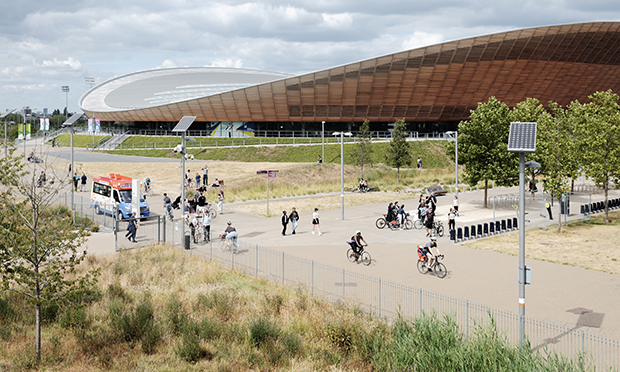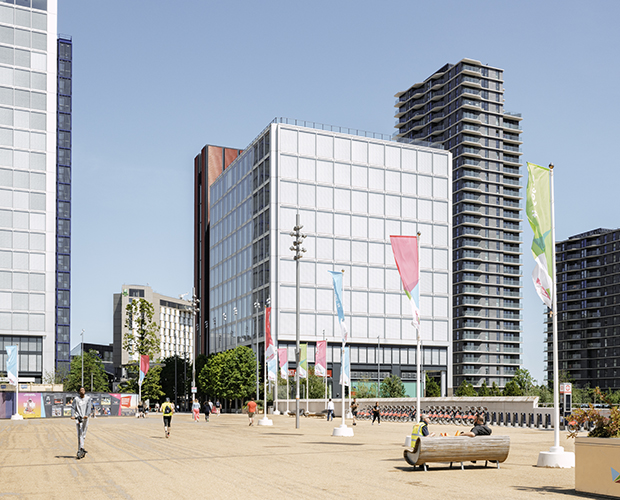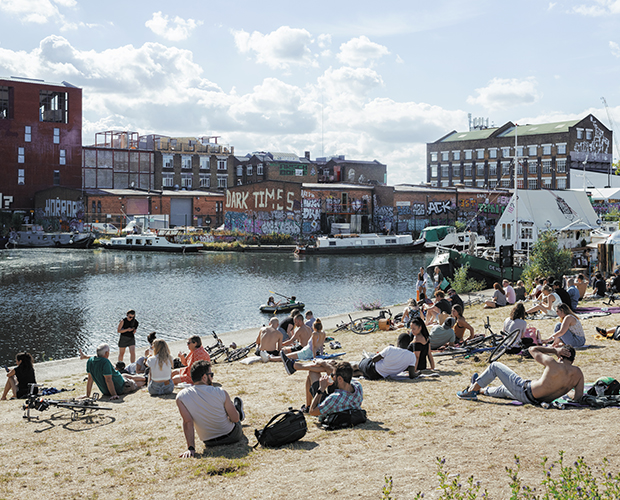After the Olympics, Tony Mak, book review: ‘Photographs that catch the fractured mood of this social cusp’

‘Strangled in roads’: The cycling arena in the Olympic Park. Photograph: Tony Mak
The leadup to the 2012 Olympics was a time of hyperbole – the Games were going to showcase the ‘best of Britain’ and they would be the most effective way of revitalising a chunk of neglected London into the bargain.
East Londoners were largely sceptical of regeneration promises from the start; we regretted also the homes, factories, businesses, allotments and other green spaces that were sacrificed to the vast development spanning the Lea.
True, even the most jaded may have been stirred by Danny Boyle’s heart-warming opening ceremony, but a decade on, many of us will be in full ‘I told you so’ mode.
Walk over a bridge into the erstwhile Olympic Park, and what do you see? Concrete, steel, glass and slashes of manicured ‘landscaping’ that look like they have been plucked from the forecourts of multiple corporate HQs.
Then try to get to the other side, and you wonder why something that calls itself a ‘park’ is so strangled in roads.

Steel and glass structures look like they’ve been ‘plucked from corporate HQs’. Photograph: Tony Mak
If you do eventually manage to traverse the web of tarmac to reach a green patch at the far edge, you’re hard up against another wall of concrete.
Retreat to Fish Island and Hackney Wick, and you find yourself back in the realm of the human, with buildings, boats and wildflower-sided paths that may be a bit scruffy in places but were clearly made with people in mind. As was all the sharp new waterside housing, even if it does look a bit lost in the industrial angle of the A12.
Tony Mak’s collection of photos in After the Olympics catches the fractured mood of this social cusp that remains a decade on from 2012.
Shiny blocks of ‘luxury apartments’ abut ramshackle veteran warehouses bearing their graffiti like badges of honour.

‘Back in the realm of the human’: Canalside in Hackney Wick. Photograph: Tony Mak
Nature wins out always, of course, and even the corporate swards are beginning to become a bit feral.
Water and sky feature heavily in these pictures, not surprising given that for all its built-upness, this is still a refreshingly quiet spot where you can catch your breath and notice how the wind whips up waves under clouds.
Hailing from China, Mak has seen plenty of regeneration, ambiguous legacy and all. He foregrounds the functional aspects of the post-Olympic spaces, with their new bridges, bike-docking stations and rail links, but despite the planning that has gone into it, we see in these images how unharmonious profit-maximising urban design can be.
The area has morphed into a ‘shiny, soulless suburb’, as the author describes it, but it is nevertheless an archipelago of neighbourhoods; somewhere to change trains or shop, but also a home to relax into.
After the Olympics by Tony Mak is published by Hoxton Mini Press, ISBN: 978-1-914314-27-8; RRP: £17.95.
